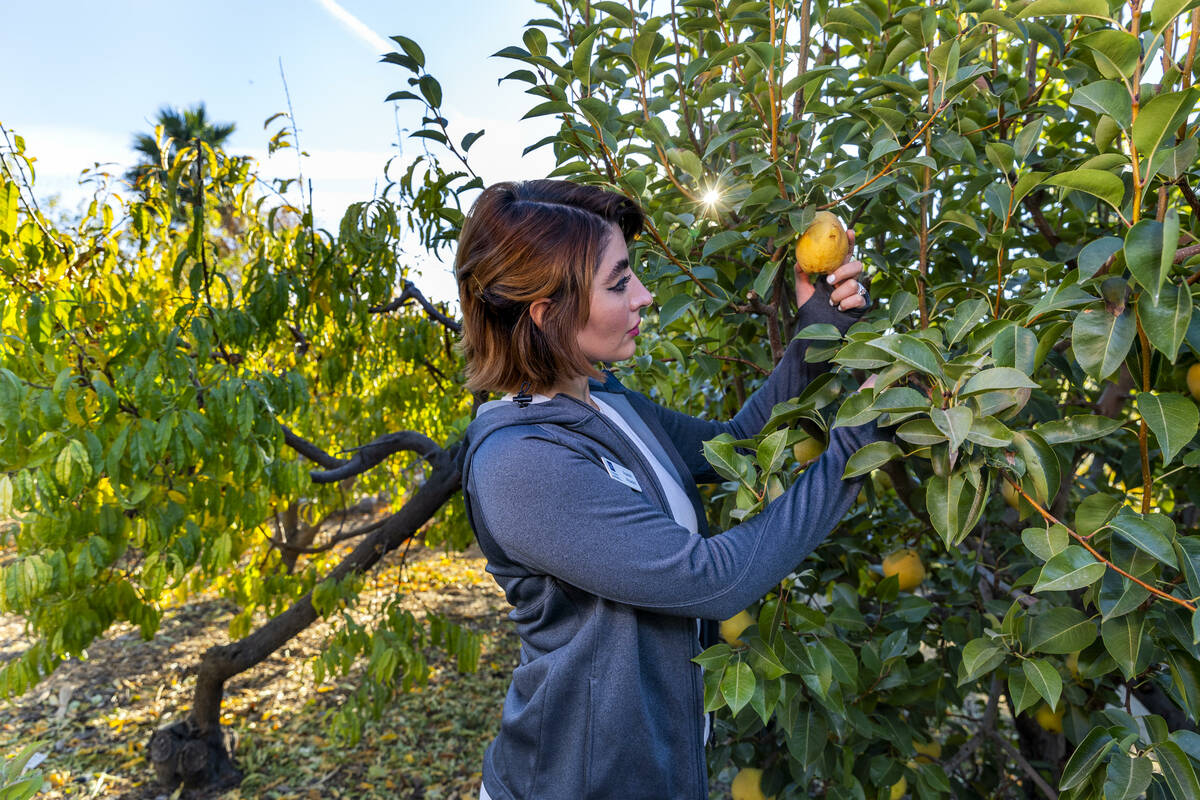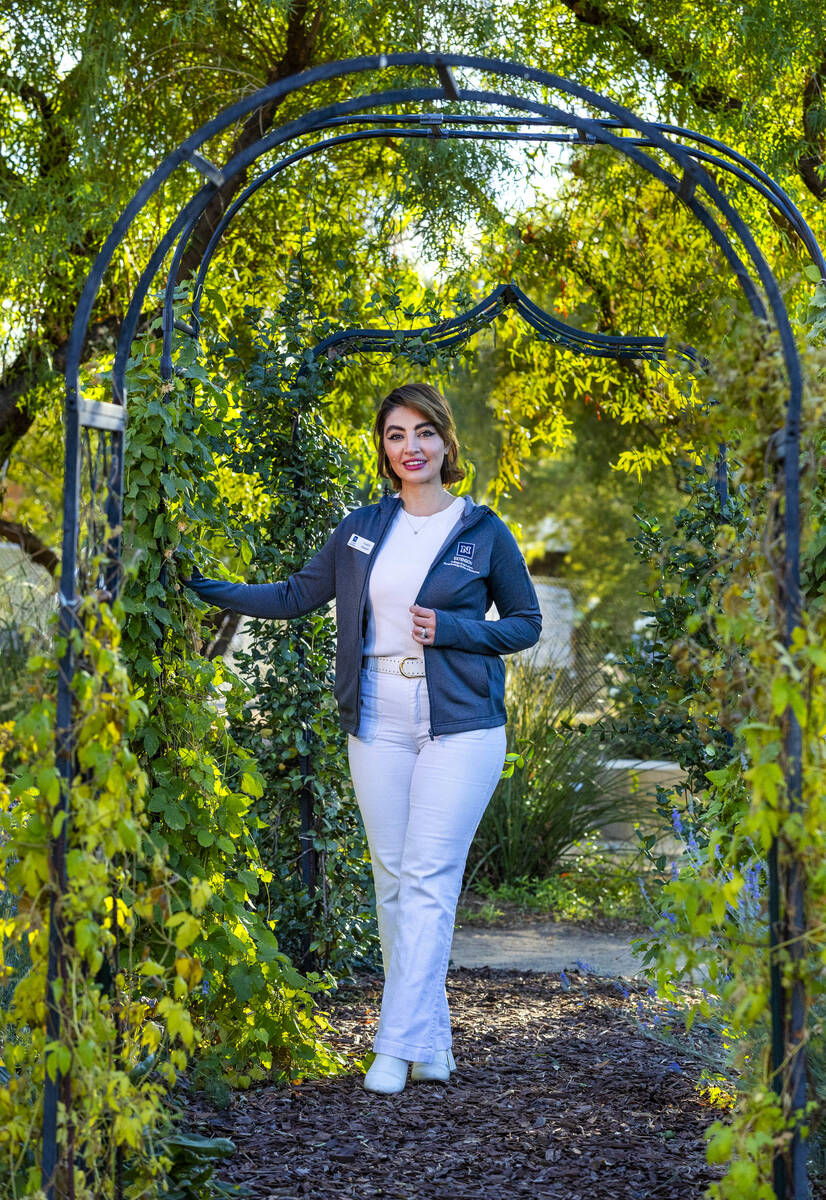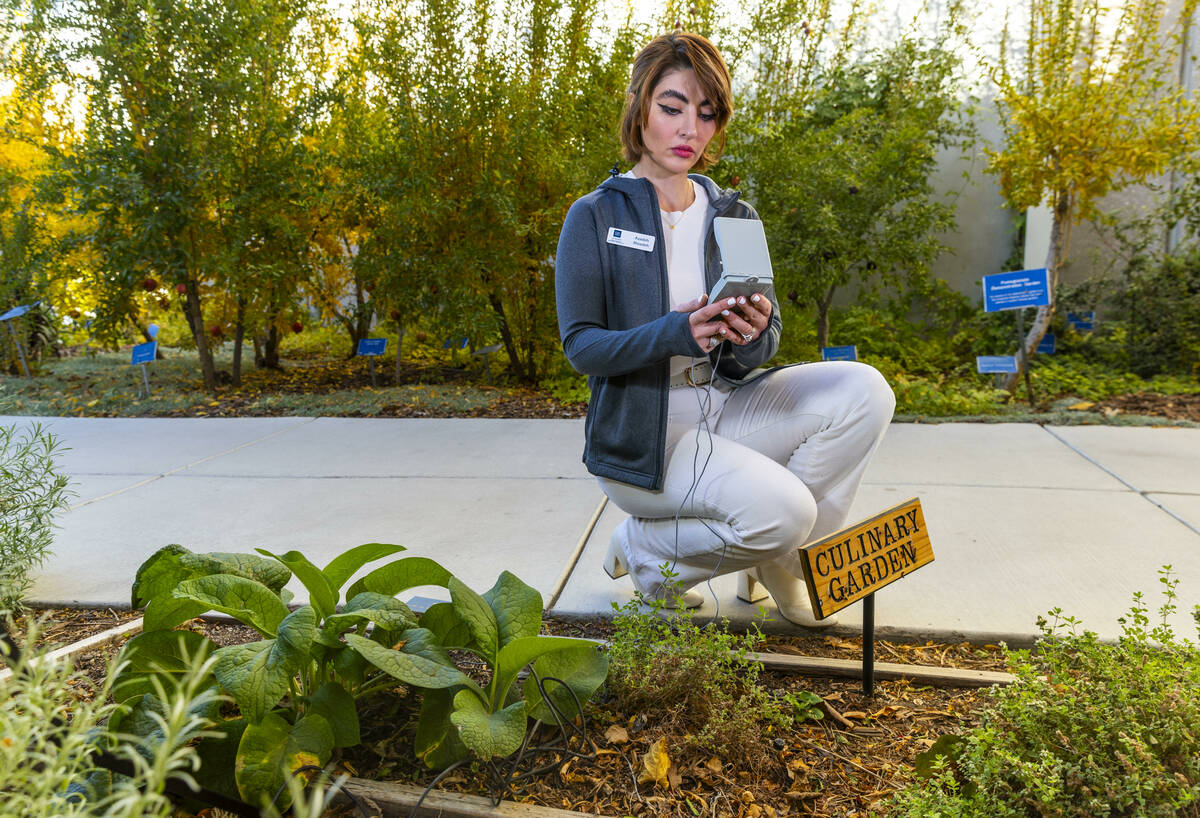UNR hires expert to bring green to Las Vegas’ beige desert
Azadeh Alizadeh’s passion for plants persists in any environment.
From the concrete jungle of Tehran, Iran, to the lush orange groves of north Florida and the harsh heat of the Mojave Desert, she’s found that having a successful garden is possible anywhere — as long as people know how to accomplish it.
“You can grow anything around here if you know the way,” she said.
That’s exactly what Alizadeh has moved to Las Vegas for: a calling to bring some greenery to a desert city known more for rocks and pavement than cactuses or native trees.
She recently joined the University of Nevada, Reno, extension office in Clark County as a horticulture expert and will lead the university’s outreach to homeowners in Southern Nevada. She’ll also lead research efforts specifically geared toward making home gardens more water-efficient.
Alizadeh comes to Nevada from California, where she worked on soil quality at UpTerra, an agricultural technology company. Her most recent degree is a doctorate of agricultural science from the University of Florida, where she published a dissertation about water stress on fruit trees.
The opportunity to see research have a tangible impact on people’s lives is a plus of her new job, Alizadeh said.
“It’s totally different from academia because you are talking to the public,” she said.
Water conservation at odds with urban horticulture
Horticulture, or the science of growing fruits, vegetables and decorative plants, is a challenge in Las Vegas’ extreme summers.
Alizadeh’s arrival comes in an era when the Southern Nevada Water Authority is encouraging homeowners to remove grass lawns in the name of water conservation, even at the expense of historic trees. Lake Mead, a reservoir on the Colorado River that serves as the region’s primary source of water, is facing unprecedented shortages.
But altering soil chemistry and limiting watering to once a week during some parts of the year can be tricky policies for people who are interested in having a home garden, Alizadeh said.
“When you remove lawns, you remove all the microbial community that you have in the soil, and it takes so many years to go back to normal,” she said.
She’s heard from many county residents who are uncertain that they could sustain plants without seeing their water bills rise. Rather than having strict watering policies, Alizadeh believes water conservation goals can be achieved without sacrificing historic plants, all through proper education.
Annie Lindsay, a UNR professor at the Clark County extension office who serves as Alizadeh’s mentor, agrees that there’s a hesitance for places like senior centers and recreational community centers to install gardens.
“I think there’s this big gap, and, frankly, educational opportunity for somebody like her, related to being able to maintain these gardens and keep them from dying and becoming eyesores,” Lindsay said.
Classes, research are dual focus
Alizadeh’s public-facing role allows for a lot of interaction with Clark County residents.
One program Lindsay is excited for her to help with is I Am a Seed, an effort geared toward children as young as 3. It aims to teach them about the plant cycle and food systems. By the 10th week, they harvest their own produce.
With some disagreements over how water should be managed in Clark County, Lindsay hopes Alizadeh can find middle ground.
“There’s all the people that want to push for more gardens, and then there’s people that say, ‘No, we’ll save water,’” Lindsay said. “Somewhere in the middle is a solution.”
Alizadeh said she’s looking forward to putting together an online course about smart irrigation and what plants people can use to jumpstart their gardens. She will research whether using visors to provide shade for plants could lead to water savings, as well.
Rather than just doing theoretical research, she is excited to produce findings that can be applied to people’s daily lives.
“My hope is to bring this research to the community,” Alizadeh said. “I believe that if we have good data, we can transfer it to the community.”
Contact Alan Halaly at ahalaly@reviewjournal.com. Follow @AlanHalaly on X.
























